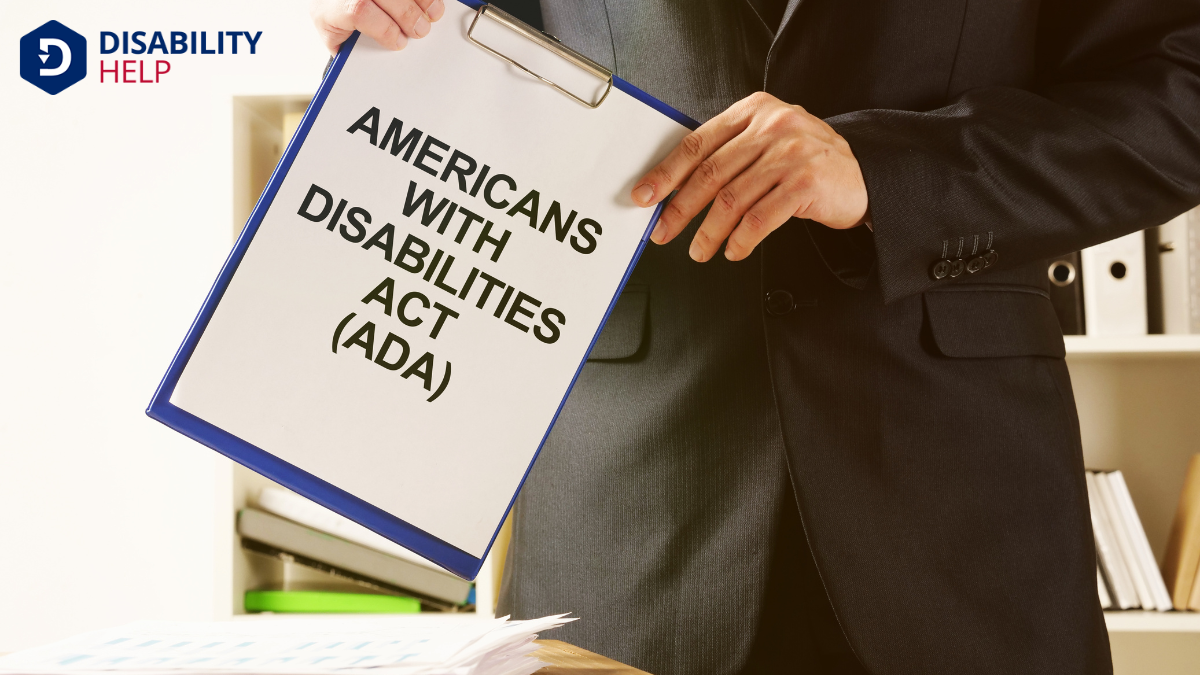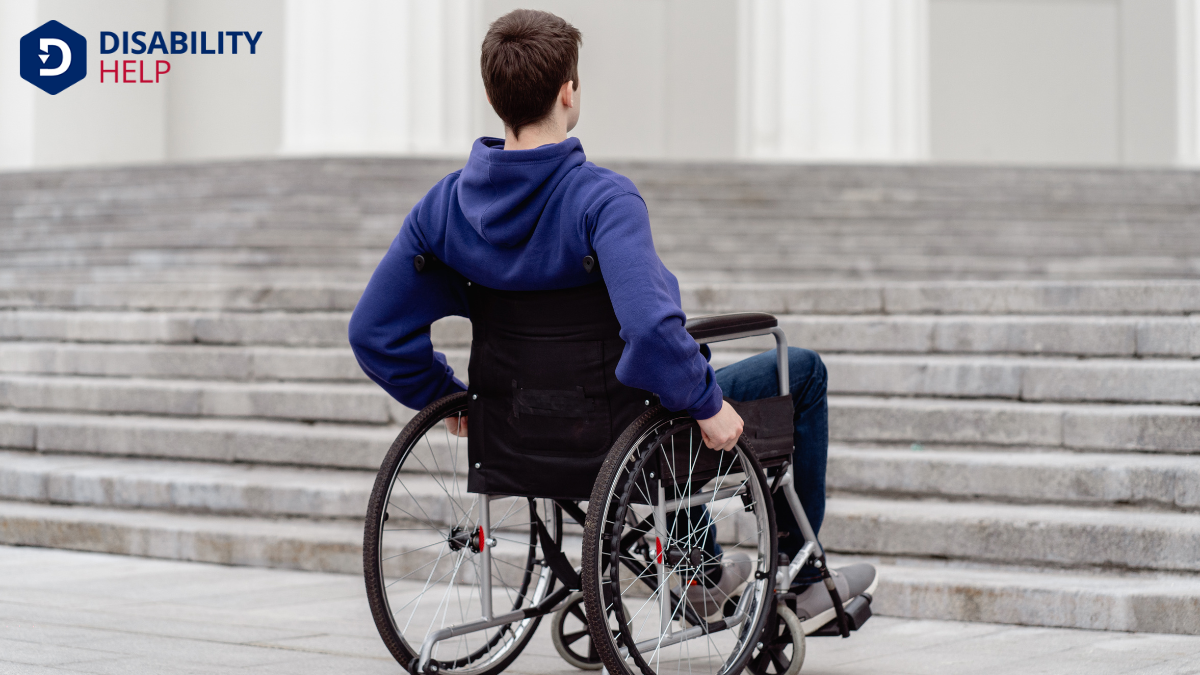As we navigate the intricacies of higher education, we must ask ourselves whether colleges can be held legally accountable for not accommodating disabled students. It's essential to explore the legal obligations that institutions have under laws like the ADA and Section 504A provision of the Rehabilitation Act of 1973 that prohibits discrimination based on disability in p.... How do these regulations shape the landscape of accessibilityThe design of products, devices, services, or environments to be usable by people with disabilities.... in academia? And what potential consequences might institutions face for non-compliance? Let's uncover the complexities and implications of this pressing issue.
Key Takeaways
- Colleges can face lawsuits for non-compliance with ADA and other disability laws.
- Legal cases highlight the necessity of reasonable accommodationsModifications or adjustments in healthcare settings to support patients with disabilities. for disabled students.
- Financial penalties and loss of federal funding can result from non-compliance.
- Non-compliance can damage an institution's reputation and attract negative publicity.
- Institutions are legally required to provide timely and appropriate accommodations.
Understanding the Legal Framework for Disability Accommodations
When it comes to understanding the legal framework for disability accommodations in colleges, it's essential that we recognize the key laws that provide protection and support for disabled students.
One significant law is Section 504 of the Rehabilitation Act of 1973A U.S. law that prohibits discrimination based on disability in federal programs and services, inclu.... This law prohibits discrimination based on disability in programs receiving federal financial assistance. It mandates that colleges provide necessary accommodations, ensuring equal accessThe principle that all individuals, including those with disabilities, should have equal opportunity... for all students.
Another vital law is the Individuals with Disabilities Education Act (IDEA), which, although primarily focused on K-12 education, influences higher education by emphasizing the need for personalized support.
As we navigate these frameworks, we must appreciate how they foster inclusive learning environments, ensuring that disabled students receive the support they need to succeed academically and beyond.
The Role of the Americans With Disabilities Act in Higher Education

Building on our understanding of the legal framework for disability accommodations, let's explore the Americans With Disabilities Act (ADA)A U.S. law that prohibits discrimination against individuals with disabilities in all areas of publi... and its impact on higher education.
The ADA, enacted in 1990, mandates that colleges guarantee accessible environments for students with disabilities. We're obligated to provide reasonable accommodations, assuring that all students have equal opportunities to participate in academic programs and campus life. This could involve modifications like providing note-takers, assistive technology, or adjusted testing conditions.
It's vital we recognize that the ADA isn't just about physical access; it also addresses discrimination in policies and practices.
Section 504 of the Rehabilitation Act: A Closer Look
While the Americans With Disabilities Act provides a broad framework for accessibility, Section 504 of the RehabilitationThe process of helping individuals with disabilities achieve and maintain their optimal physical, se... Act of 1973 offers additional protections specifically tailored for students with disabilities.
This section guarantees that no student is excluded from participating in, denied the benefits of, or subjected to discrimination under any program or activity receiving federal financial assistance.
Let’s explore some key aspects of Section 504:
- Access to Educational Facilities: Schools must provide equal access to facilities and programs.
- Program Modifications: Adjustments in academic requirements might be necessary.
- Support Services: Provision of auxiliary aids, such as sign language interpreters.
- Complaint Process: Students can file complaints if they face discrimination.
- Funding Implications: Institutions risk losing federal funding if they fail to comply.
Understanding these elements helps us grasp the scope of Section 504.
Defining "Reasonable Accommodations" in an Academic Setting
To effectively support students with disabilities, we must clearly define what constitutes "reasonable accommodations" in an academic setting.
These accommodations are adjustments or modifications that allow students with disabilities to have equal access to education. They're intended to provide a level playing field without altering the fundamental nature of academic programs. Examples might include extended time on tests, note-taking assistance, or accessible classroom locations.
We need to guarantee these accommodations are tailored to individual needs while maintaining academic standards.
It's essential for institutions to engage in an interactive process with students to determine suitable accommodations. By doing so, we're not only complying with legal requirements but also fostering an inclusive environment where all students can thrive and fully participate in their educational experiences.
Common Challenges Faced by Disabled Students in College

Maneuvering college as a disabled student often feels like traversing a complex maze. We encounter numerous challenges that can hinder our academic journey. The first hurdle is often accessibility; campuses aren't always designed with our needs in mind.
Next, there's the issue of securing appropriate accommodations, which can be a time-consuming process.
Let's not forget the social barriers we face:
- Inadequate support services: Resources may be limited or not well-publicized.
- StigmaThe negative attitudes and discrimination faced by individuals with disabilities due to societal ste... and misunderstanding: Peers and faculty might lack awareness of our challenges.
- Communication barriers: Not all professors are trained to effectively communicate with us.
- Limited course options: Some classes mightn't be accessible or adaptable.
- Navigating bureaucracy: Administrative processes can be intimidating.
These obstacles underscore the importance of advocating for better support and understanding.
Analyzing Notable Legal Cases and Precedents
As we examine the landscape of accommodations for disabled students, we can't overlook the impact of landmark legal cases.
These cases have set key precedents that shape how colleges implement policies and guarantee compliance with the law.
Landmark Cases Overview
Understanding the legal landscape surrounding accommodations for disabled students in higher education requires a look at several landmark cases that have shaped current practices.
These cases highlight how courts interpret the law and the responsibilities of educational institutions.
- Southeastern Community College v. Davis: This case addressed whether institutions must modify programs to accommodate disabled students.
- Alexander v. Choate: Here, the court clarified that not every denial of accommodationAdjustments or modifications provided to individuals with disabilities to ensure equal access and pa... is discrimination.
- Guckenberger v. Boston University: This case focused on the reasonableness of accommodations provided.
- Zukle v. Regents of the University of California: This case examined academic standards versus accommodation needs.
- Dear Colleague Letters: While not court cases, these are influential guidelines issued by the U.S. Department of Education.
Key Legal Precedents
Building on the landmark cases overview, let's explore the influential legal precedents that continue to shape accommodations for disabled students in higher education.
One significant case is *Southeastern Community College v. Davis* (1979), where the Supreme Court ruled that institutions aren't required to accommodate to the point of fundamentally altering their programs. This case set boundaries on the extent of required accommodations.
Another pivotal case, *Wynne v. Tufts University School of Medicine* (1992), emphasized the necessity for colleges to actively engage in an interactive process with students to find reasonable solutions.
Finally, *Guckenberger v. Boston University* (1997) reinforced that institutions must provide appropriate and necessary accommodations without unnecessary delay.
These precedents guide and inform current practices, ensuring that students receive fair treatment and access.
Potential Legal Consequences for Non-Compliant Institutions
When colleges fail to provide adequate accommodations for disabled students, they risk facing significant legal consequences. Institutions must understand the weight of their responsibilities under laws like the Americans with Disabilities Act (ADA) and Section 504 of the Rehabilitation Act.
Non-compliance can lead to various repercussions that can severely impact a college’s reputation and finances. Let’s look at what could happen:
- Lawsuits: Students might file lawsuits seeking damages for discrimination.
- Fines and Penalties: Federal agencies may impose fines for violations.
- Loss of Federal Funding: Non-compliance can result in losing critical federal financial aid.
- Negative Publicity: Legal issues can attract unwanted media attention.
- Mandatory Policy Revisions: Institutions might be forced to overhaul their policies and practices.
Understanding these potential consequences helps us appreciate the importance of compliance.
Strategies for Colleges to Enhance Accessibility and Inclusion

As we acknowledge the significant risks of non-compliance, let's focus on proactive approaches that colleges can take to enhance accessibility and inclusionThe practice of creating environments in which any individual or group can be and feel welcomed, res... for disabled students.
One effective strategy is to develop thorough accessibility audits. By regularly reviewing campus facilities, we can identify barriers and implement necessary modifications.
Additionally, offering training programs for faculty and staff will guarantee they understand inclusive teaching practices and the importance of accommodations.
Technology can play a vital role, so let’s invest in assistive tech that supports diverse learning needs.
Creating an inclusive culture also involves engaging with the disabled community through feedback and advisory panels.
Future Trends in Disability Rights and Higher Education Compliance
Although we've made progress in supporting disabled students, the future of disability rightsThe legal and human rights afforded to individuals with disabilities, often the focus of advocacy an... and higher education compliance promises even more transformative changes.
As we move forward, several trends are emerging that could redefine our approach:
- Increased use of technology: Virtual reality and AI can provide personalized learning experiences.
- Universal Design for Learning (UDL)An educational framework that guides the design of learning experiences to be accessible to all stud...: More institutions are adopting UDL principles to benefit all students.
- Legal updates: New legislation may further enhance protections and accommodations.
- Data-driven approaches: Institutions are using data analytics to identify and address accessibility gaps.
- Global collaboration: Sharing best practices internationally can lead to improved standards.
These trends highlight a commitment to ensuring that higher education becomes more inclusive and equitable for everyone.
Let's embrace these changes to create a brighter future for all students.
Frequently Asked Questions
Can Students Sue for Emotional Distress Due to Lack of Accommodations?
We can indeed explore suing for emotional distress if accommodations fail. It’s essential to consult legal advice, as each case varies. Understanding our rights guarantees institutions prioritize accessibility, fostering an inclusive environment for all students.
What Rights Do Disabled Students Have Under State Laws?
We’ve got to understand that state laws protect disabled students' rights. They mandate reasonable accommodations to guarantee equal access to education. We should always advocate for awareness and support, making sure everyone knows their rights and options.
How Can Students Document Unmet Accommodation Needs?
We can document unmet accommodation needs by keeping detailed records of communication with faculty, saving emails, noting dates of requests, and gathering medical documentation. Let’s guarantee we have evidence when advocating for our rights and support.
Are There Time Limits for Filing a Lawsuit Against a College?
Let’s explore time limits. Typically, we’ve got a set period, known as the statute of limitations, to file a lawsuit. It varies by state and case specifics, so it’s essential to act promptly and seek legal advice.
Can Colleges Claim Financial Hardship to Deny Accommodations?
We can't let colleges claim financial hardship to deny accommodations; it's critical they fulfill their legal obligations. Understanding these situations helps guarantee compliance with disability laws, fostering inclusivity and equality. Let's prioritize support for all students.
Conclusion
In wrapping up, it's clear we can't underestimate the importance of accommodating disabled students in higher education. We've seen how the ADA and Section 504 hold colleges accountable, and ignoring these obligations can lead to serious legal and financial consequences. To foster an inclusive environment, we must prioritize accessibility and actively engage in creating reasonable accommodations. By doing so, we're not just complying with the law but also promoting a diverse and equitable academic community.






